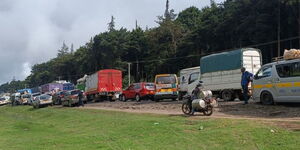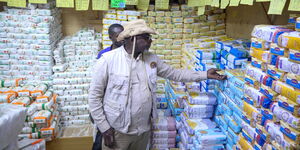The prices of second-hand cars are at an all-time high and this has stirred a debate among Kenyans, curious to understand the sudden hike.
Commercial and automobile experts noted that used car prices had gone up by up to 33 per cent in Kenya towards the last quarter of 2021.
Popular car models such as Subaru, Toyota, Mazda, Suzuki, Honda, and Nissan were the most affected with their prices soaring by a range of between Ksh 200,000 and Ksh 800,000.
But what exactly necessitated this rise? Kenyans.co.ke sought to find out.
Shortage of Semiconductor Chips
The increase in prices of used cars was majorly attributed to the global shortage of semiconductor chips, a crucial component in new cars.
These tiny but highly complex chips contain billions of transistors, that form the basis of the circuitry that allows the cars to operate.
Semiconductor devices control microprocessors, switches, sensors for light or heat, safety features, power management, displays and amplification of signals in vehicles.
The scarcity of computer chips was caused by the Covid-19 pandemic which led to the closure of many production factories. Reduction in production of cars was rose to over 40 per cent due to the shortage of these chips, according to leading global carmakers.
Chipmakers further rerouted their supply to the electronics industry which faced increased demand for cell phones, televisions, computers, games, and home appliances from customers under lockdown and curfews.
As a result, many automakers were unable to release new cars to the market which led to an increase in demand for used cars.
Foreign car rental companies which are known to supply local car importers with their older cars as they buy newer ones also resorted to keeping and withdrawing their fleets.
Additionally, motorists who want to upgrade their cars and get rid of their old ones have to pay higher amounts than expected.
This has interrupted the usual steady supply of vehicles for the used car market and pushed up prices.
In some parts of the country and continent, individuals are selling their cars higher than they purchased after the demand for used cars soared.
Temporary Solutions
Automakers are currently shipping vehicles without specific features to save chips. These include automatic start-stop, extra key fobs, wireless charging, and lumbar support in the passenger seat. Some resorted to reducing the number of chips needed.
Others signed deals with chipmakers contracted to supply chips over a certain period of time.
Predictions
According to AutoForecast Solutions, the world lost 11.3 million units of production in 2021, will lose 7 million units in 2022 and 1.6 million in 2023, because of the chip shortage.
The global automotive forecasting company further predicted that motorists will still face reduced incentives, high prices, empty showrooms, long delivery periods, and delayed vehicle launches in 2022.
Used Cars Policies in Kenya
Kenya plans to phase out secondhand cars by 2026. On Tuesday, November 9, the Kenya Bureau of Standards (KEBS), directed that only right-hand drive (RHD) motor vehicles whose year of first registration is from January 1, 2015, and later, shall be allowed into the country effective January 1, 2022.
It further advised that the certificates of roadworthiness for vehicles whose year of first registration is 2014 will not be valid after December 31.
Motorists in the country were encouraged to purchase locally assembled Proton Saga saloon cars built at the Associated Vehicle Assemblers (AVA) in Miritini, Mombasa County, and automobiles from Mobius Motors Kenya Ltd












